PART 1 |
| |
"Without some inanity, laughter, and purposeless pleasure, we should
all go mad, one is told. Maybe, but despite a veritable avalanche of
inanity, continuous laughter, and pleasure unlimited . . . could mankind
behave more madly? Might it not, then, be worth enquiring whether
too much pleasure does not thicken the epidermis, dull the mind,
shorten the vision, and generally help us make fools of ourselves?" |
Andrew Buchanan, from Film and the Future, 1945 |
Almost all the leaves are down, the sky is gray, and already the 2012 London Film Festival seems like a distant memory. It wasn't a vintage year, but, as ever, the Festival dished up its fair share of surprises, not just in the form of organisational hiccups, nor merely in the form of films to astound or dumbfound us, but also in the shape of unexpected human encounters. The 'Surprise Film' slot at this year's festival was filled by David O'Russell's Silver Linings Playbook. For me, though, the 'Surprise Festival Moment' occurred during a screening, in NFT1, of Alex Gibney's Mea Maxima Culpa: Silence in the House of God – a documentary that hauls the Catholic Church before the court of public opinion again, over the unforgivable behaviour of its high, and low-life, priests. As the film began, a dapper, silver-haired gent edged past me and eased himself into the vacant seat to my left. The late arrival in question was none other than renowned author and lawyer Geoffrey Robertson QC, who appears in the film as a key witness for the prosecution. Roberton's book The Case of the Pope might have provided the template for Gibney's film: its publishers, Penguin, promoted it as "a devastating indictment of the way the Vatican has run a secret legal system that shields paedophile priests from criminal trial around the world." Robertson's presence was welcome but distracting.
As I sensed him beside me, watching himself on screen, I couldn't help but tune in for a sotto voce sigh of satisfaction at a well-made point or a nervous fidget, perhaps accompanied by a sharp intake or exhalation of breath, at a word out of place. He gave nothing away. During the Q&A after the screening, someone asked Alex Gibney if he knew what progress Robertson was making in his case against the Vatican. The campaigning Queen's Counsel to my left yelled out, "No, but Geoffrey Robertson might!" The entire cinema revolved as one to focus on Robertson. I found myself facing a solid bank of jaws and eyes, all as wide open as those of the lad on the Festival programme. Many would have been locked in that posture throughout Mea Maxima Culpa as it reiterated some sickening facts about sexual abuse in the Catholic Church, lambastes that institution for its cover-up of those facts, and adds extra edge to the cosy phrases 'Catholic guilt' and 'Catholic taste'.
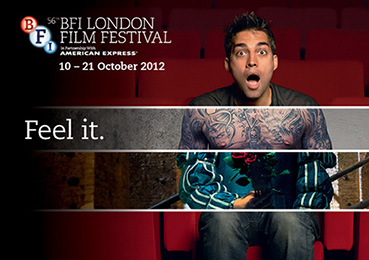
A few weeks ago, the august founder of this site posted a blog note in which he explained some of the reasons we don't review as many films as we'd like here: demanding day jobs, limited leisure time, and a preference for detailed reviews over impressionistic snapshots. There's also the small matter of being busy watching films we'd like to write about, if we had the time – not to mention the need to furnish the mind through books, everyday domestic and political chores, and one's social life, such as it is. My colleague also explained that he established Cine Outsider "as a conduit for a shared enthusiasm for lesser seen works." Everyone who writes for this site endorses that ethos. I took time out for the London Film Festival and was fortunate to see several dozen films; the ones I'm most likely to return to, when time allows, are those least likely to receive the attention they deserve. The attention a film receives is determined by the vagaries of fashion, the politics of publishing, the noise of the net, the predilections of programmers and reviewers, but, above all, it is determined by the terms of its distribution deal and the size of its marketing budget, or lack thereof. Those two final factors are contingent, in their turn, on the size of a film's total budget. We disagree on the questions of budgets, our founder and I. He's not too concerned about a film's budget, as long as the end result is worth watching. I argue that we'd watch more films worth watching if funding was more evenly and wisely distributed. As my colleague says while considering a different difference of opinion: "Which one of us is right? Well, both of us, actually."
It is easy to lose perspective when discussing film budgets, and it's equally easy to lose sight of the social motives for making documentaries. Alex Gibney clearly does so occasionally. Interviewed by Geoffrey McNab for the December issue of Sight & Sound, Gibney says: "You think, 'Well, is that interesting to me? Could I make that into an interesting story?' You decide on that basis because you know there is money attached . . . the choices made in terms of what films to do are sometimes market-based, not purely creative." He says the experience of co-directing The Trials of Henry Kissinger with Eugene Jarkecki taught him a valuable lesson: "There can be a market for well-told stories." That will come as news to nobody, least of all the Film Distributors' Association. Yesterday, while announcing that UK box-office receipts for 2012 have already risen above £1 billion, the FDA felt moved to add that, "There is insatiable demand for stories on film." Skyfall, the 23rd James Bond film and Sam Mendes's sixth, adds weight to that pronouncement and contributes significantly to that figure. The FDA estimates that 14 million people have so far seen Mendes's hit-me-with-your-rhythm-stick shtick in a UK cinema. It has made over £83 million to date and sits second only to Avatar atop the UK's box-office all-time biggest earners list.
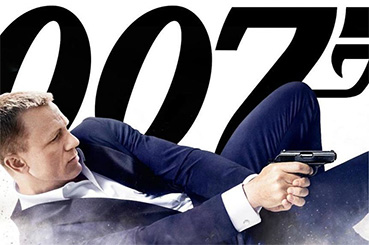
I'm all for discussing budgets. So, is Alex Gibney. In that revealing Sight & Sound interview, he spends more time discussing budgets than the content of his film. Gibney – whom Geoffrey McNab describes as part-businessman, part-artist – recently sold a 50 per cent stake in his production company, Jigsaw, to Content Media Corporation. He says: "The idea was that Content would help me grow my company." I'm sure it will, but documentary doesn't spring immediately to mind as a means of making money, and few, even among those most eager to make lot's of money, would consider it the best. Gibney doesn't say how much he wants to 'grow' his company, but he does say, "I tell the people who are raising money that you have to think of it as a political campaign."
Even Alex Gibney's budgets, hell, even the budgets for mainstream blockbusters like Skyfall, fade into insignificance next to those allocated to the gargantuan marketing campaigns of the see-saw US Presidential election that saw Barack Obama scupper Mitt Romney's bid to become the first complete and utter Mormon in the White House. Over $2 billion dollars were spent during that election. The furrowed frowns of those inclined to list better uses for that money will have tightened further at reports suggesting the election was decided, at its death, by comparatively inexpensive 'Get-out-the-vote' methods. So, despite the millions spent on a myriad of expensive electoral ads, it all hinged on old-fashioned voluntarism, eyeball-to-eyeball argumentation, canvassing, door-knocking, leafleting, and cold-calling. It made the traditional flag-waving balloons-'n'-bluster rallies seem an even more futile feature of the whole tawdry spectacle than usual, which is to say, an even more shocking waste of money. If we begin to consider budgets more often, we might move toward a politics that people participate in rather than pay for and watch as bystanders. Documentaries have a role to play in that necessary shift, and we should demand a film culture that involves us rather than one that simply invites us to watch and enjoy.
The result itself wasn't the only pleasure to be gleaned from the Presidential election. At midnight GMT on the eve of the election, Britons glued overnight to their TV screens were offered temporary respite from the vacuous 'too-close-to-call' blather of panicked pundits and pollsters by Film Four, who treated us to a rare, mischievously timed screening of Bill Douglas's mighty epic about the Tolpuddle Martyrs, Comrades. I mentioned that film on this site recently when discussing film budgets, and the feedback I received confirmed that I'm not alone in regarding it as an injustice that Scotland's greatest filmmaker struggled to find funding and made so few films. I recently stumbled upon a quote Bill Douglas would have appreciated in Unlikely Warriors, Richard Baxell's new book on a group of working-class heroes of more recent vintage – the British International Brigade volunteers who fought to defend democracy in the Spanish Civil War. Baxell quotes an instructive story from Judith Cook's own book on Spain, Apprentices of Freedom: "A do-gooding middle-class lady came to Clydeside in the early 1930's and was telling a group of wives of the unemployed how to make a nourishing soup out of fish-heads and fish-bones. Jimmy's mother watched with interest. 'Aye', she said at the end, 'very interesting. And who gets the rest of the fish?" The unfair, uneven distribution of films and fish affects us all.
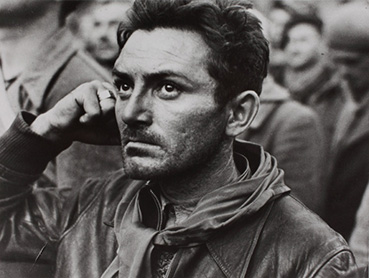
I wish we had as much time to look at the films that gobble up big budgets as those inventively made with the scraps. I wish we had time to act on Colin McArthur's example and injunction, and try to "describe and interrogate all the impulses, mechanisms and institutions of a complex film culture." We don't, but at least we can throw a few contrarian ideas around, try to edge toward some kind of understanding of it, and be rigorous whenever we do consider mainstream entertainments. As the great John Grierson once said: "I see no reason why, because a film is made for the populace and made for money, we should exempt it from the ordinary duties of art . . . cinema is, by permission of our lop-sided and undisciplined system of society, a very haphazard affair, the effects and achievements of which are almost always dictated by the mind of the profit-monger . . . As for the ordinary commercial film, it so often hides mere showman's intention behind its excitement and spectacle, that the critic must stand ready at all times to pass a scalpel (or a dollop of carbolic) over it."
In his blog comments my colleague drew an interesting analogy between chairs and films. He says: "If a chair is comfortable, doesn't look too peculiar, and is built to last, then we can all agree it's a bloody good chair, but there are no criteria for factually classifying a film as good or bad." As Evelyn Waugh's Mr Salter often said to his boss at The Daily Beast: "Up to a point, Lord Copper." Last week, I came into possession of a slightly foxed pamphlet from The Daily Mail's Young Britain Educational Series of the 1940's. It's a hoot, but the pamphlet offers some pertinent pointers to those of us trying to separate the bland from the grand. In Good Films: How to Appreciate Them, its author Jympson Harman, says: "Films that do not tell true history are bad ones. American films often make the characters in historical stories or in tales of other lands talk like modern Americans. This is bad because it is untrue. This applies, too, to pictures supposed to be film versions of famous books. It is bad to alter such works for the screen and pretend they are the same as the originals. Just as it wrong to give false information about famous people by altering their lives to make movie stories. I am thinking of a good film called A Song to Remember. It had a good story, was well made in every respect, well acted (by Paul Muni, Merle Oberon and Cornel Wilde) . . . but it was a 'bad' film because it pretended to be the life of Chopin and was not a bit like it."
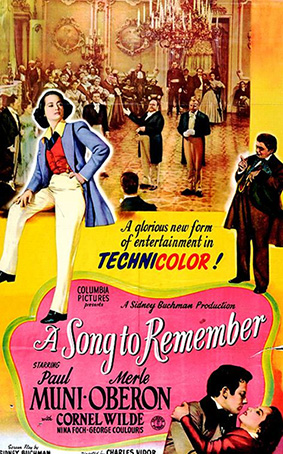
Harman, who was Film Critic at the London Evening News, provides a jaunty analysis of 'Directors to watch': "Frank Capra – Comedies with a message, Alfred Hitchcock – Tense thrillers, John Ford – Big adventure dramas, Fritz Lang – Powerful melodramas, Ernest Lubitsch – Witty comedies, Jean Renoir – Pictures about real people, Preston Sturges – Gay comedies, Cecil de Mille – Elaborate spectacles." Harman confirms all our prejudices about right-wing critics, particularly when he says: "A good picture should make you leave the cinema feeling that you have had a new experience . . . You should feel better for having seen it, even though it may have been about things and people you know to be wrong." At certain points, though, while reading that list for instance, the smile faded from my face and I found myself tilting my head in startled admiration. I did so at Harman's simple advice for critics: "Don't get into the habit of calling only those films good that you prefer yourself. It isn't the subject of a picture, but the way it is made that decides if it is good or bad." Indeed, but reviews, those below included, are riddled with opinion. John Grierson, as ever, put it best. He said: "The asses' ears of particular, and sometimes indefensible, predilection, haunt even the philosopher." Harman's naïve, if delightfully clear-cut suggestions for ways of classifying 'good' and 'bad' films would consign most adaptations, even many a documentary, to the dustbin of film history; they certainly beg interesting questions of Shola Lynch's Free Angela and All Political Prisoners, which makes a movie story of Angela Davis's life. We write for this site to praise "lesser-seen works" and genres, but also to raise lesser-heard questions and even, occasionally, to consider what is 'bad' about 'good' films, and vice versa. That the site affords us the space to explore ideas at length, and the time necessary for those ideas to settle and grow, is important too. There are times when we really see the chair and are taken aback by what we're sitting on; times when we think about the manufacture of chairs and wonder what distinguishes this chair from that, why it cost so much, which carpenter or factory made it, why they made it as they did, and with what materials. But that's enough of chairs and fish.
| A Question of Originality |
|
Another Cine Outsider contributor, Timothy E. RAW, opened his well-made review of this year's Sutherland Prize winner, eco-tearjerker Beasts of the South Wild, with some polished comments on the politics of prize giving before assessing Benh Zeitlin's enchanting crowd-pleaser with a tone of healthy scepticism. I will attempt to beat down the flames of adulatory excess too, as I compare two entertaining films that bear out JB Priestley's comment about "truth's determination to keep right on being stranger than fiction." While reviewing Alex Gibney's Mea Maxima Culpa and Shola Lynch's Free Angela and All Political Prisoners, I will consider what's 'bad' about those two 'good' films, delve into documentary's past, and shift back and forth across the Atlantic to reprise a few 'controversial' arguments about the way documentaries operate. Above all, I'll look at what John Corner, in his essay 'What Can We Say About Documentary?', calls a crisis of confidence in the conventions of documentary, and wonder what precipitated that crisis.
I'll begin with Mea Maxima Culpa, simply because I saw it first. Geoffrey Robertson's The Case of the Pope, his 2010 broadside against Pope Benedict XV1, highlights an important of aspect of Gibney's film: whatever else it is, it is no exposé. Even as he wrote The Case of the Pope, Robertson himself was, to some extent, treading a well-worn path. In 2003, the Boston Globe was awarded a Pulitzer Prize for Public Service for its groundbreaking investigations into child sexual abuse within Catholicism. Peter Mullan's The Magdalene Sisters (2002), Pedro Almodovár's Bad Education (2004), Colm O'Gorman's Sex Crimes and the Vatican (2006), Amy Berg's Oscar-nominated Deliver Us From Evil (2006), and others besides, also lifted the lid on those dank secrets. Amy Berg's latest film, West of Memphis, was among the dozen films in competition for this year's Grierson Award for Best Documentary screened at the London Film Festival, an award won by Mea Maxima Culpa, which is surely a shoo-in for an Oscar nomination too. The Grierson award was conceived to recognise documentaries of "integrity, originality, technical excellence or cultural significance." Where Alex Gibney is concerned, we can begin by crossing 'originality' off that list. In a recent piece in which he defends Christopher Nolan against his detractors, film critic David Bordwell points to four key areas of innovation in film: subject matter, themes, formal strategies, and style. I can think of just one example in Mea Maxima Culpa of Gibney innovating in any of those areas, and that a minor one concerning his recording of deaf interviewees.
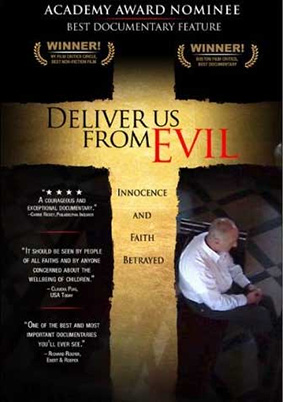
Originality was not much in evidence in the other documentaries nominated for the Grierson award: Nick Ryan's The Summit often felt like a reworking of Kevin McDonald's Touching the Void, Katja Gauriloff's Canned Dreams like an amalgam of Nikolas Geyrhalter's Our Daily Bread and Michael Glawogger's Workingman's Death, and, as we shall see, Shola Lynch's Free Angela and All Political Prisoners, like an excerpt from Göran Olson's The Black Power Mixtape. And, while I'm listing antecedents, Beasts of the Southern Wild tasted like a second serving of Henri Safran's salty coming-of-age drama Storm Boy, with a light seasoning of Alice Walker and John Steinbeck added to the re-heated Deep South stew. My point is not that these films are pointless because plagiaristic, but that a steady simmering process within cinema produces tasty dishes laden with familiar flavours and nourishing ideas. The conversation among films is ongoing, and recurring themes, trends, even a prevailing mood, can be discerned if you watch enough films, particularly at Festivals. Those films returned me to the idea of 'intertextuality' which I considered in a piece I posted at the start of the London Film Festival, to Thomas Leitch's notion of films as hybrid 'texts', "with each text, avowed adaptation or not, afloat upon a sea of countless earlier texts from it cannot help but borrow."
I don't intend to revisit intertextuality here. I had enough arguments about the comparative virtues of realist and non-realist documentaries as a Film Studies student to last me a lifetime, so, nor do I intend to revisit those arguments. Bill Nichols' excellent arguments about the competing merits of the poetic, participatory, performative, expositional, reflective, and observational categories of documentary would also just muddy the waters. I'll focus, simply, on a trend in documentary film culture highlighted by Mea Maxima Culpa and Free Angela and All Political Prisoners: the trend that emphasizes entertainment at the expense of ideas, even in films as politically punchy as these films appear to be. I hope that by scrutinizing these films, and the ways Gibney and Lynch talk about them, I can draw out some questions relating to the relationship between documentary and entertainment.
There are aspects of both Mea Maxima Culpa and Free Angela films that discomfort and dismay not just for what is said, but how it is said. In his Chicago Sun-Times review of Gibney's Enron, Roger Ebert noted: "This is not a political documentary. It is a crime story." Chicago Times critic Richard Roeper considered the film to be, "brilliantly executed and brutally entertaining." Film critic A.O. Scott, reviewing it in The New York Times called it "almost indecently entertaining." It makes me nervous to hear a film about corporate corruption, greed, and power described in these terms. It sets alarm bells ringing. Discussing Mea Maxima Culpa with Philip Concannon during the London Film Festival, Alex Gibney himself compared the film to his earlier documentary on torture: "Taxi to the Dark Side was a murder mystery, and I suppose this is a sex mystery." These tasteless, tactless comments indicate the extent to which Gibney is in thrall to narrative techniques and traditions. His films exemplify the 'fictionalization' of fact. While admirable in ways I'll describe Gibney's work is, nonetheless, typical of the intrusion of inappropriate entertainment values into non-narrative audio-visual forms.

For the first half of Mea Maxima Culpa the fear was strong that Gibney was not merely echoing earlier films, but also replicating the 'bad apple' approach to systematic corruption that served him so well in his Oscar-nominated film on corporate fraud, Enron: The Smartest Guys in the Room (2005), and his more recent Oscar-winning film on torture by the US military, Taxi to the Dark Side (2007). Gibney initially focuses on a single, abhorrent case of child sexual abuse: that involving Father Lawrence Murphy, a predatory priest who, unchallenged for nearly quarter of a century, raped and abused over 200 students entrusted to his care at St John's School for the Deaf in Milwaukee, Wisconsin. Gibney is deploying a familiar narrative strategy, an 'entry strategy' in which the director focuses first on a human story, to cement audience identification with an issue, then works out from there. This is seen as a means of 'humanizing' complex issues, but it just as often simplifies them.
Mea Maxima Culpa makes extensive use of archive materials, home movie footage, faded photographs, and assorted documents to paint a credible portrait of that accursed community, but it is through interviews that it delivers its most telling punches. Four of Father Murphy's victims tell the appalling, heartbreaking story of their well-documented boyhood ordeals and the heart-warming tale of their ultimately successful fight for justice – to camera, in their own words. Although Gibney unnecessarily uses actor-voiceovers where subtitles would have sufficed, he also took the inspired decision to deploy microphones during interviews. As the interviewees sign, they make resonant slapping sounds that echo the violence they were subjected to and the violence of their emotions as they relive their traumatic experiences. Those sounds echo in the mind long after the film has finished.
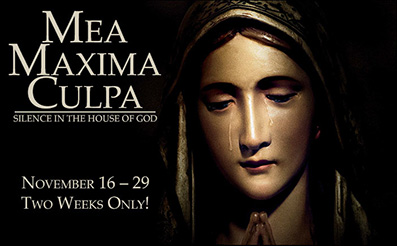
Molested, masturbated, forced to perform oral sex, those vulnerable, trusting deaf boys were trapped in Murphy's clutches and within the Church's code of secrecy. Doubly imprisoned in silence by their disability and by the myth of priestly infallibility, they had nobody to turn to. They began to campaign publicly, by fly posting 'Wanted' notices advertising Father Murphy's crimes locally. The clergy turned a blind eye. When they eventually communicated their suffering to authority figures (lawyers, the police, other priests), they were initially met by yet another depressing wall of silence. These metaphoric and literal layers of silence make us want to scream with rage, but the second half of the film forces our jaws further apart, as Gibney pulls out of close focus to present a wide-angle view of the global scale of the problem and the systematic cover-up conducted by the Church. Gibney interviews key witnesses in Africa, England, Ireland, Italy and Latin America who take us beneath the benign surface of the priesthood and testify to a rottenness running right through Catholicism to its culpable core: the Vatican itself, a statelet set up by Mussolini in 1929 and responsible for the infamous 'rat-lines' that provided escape roots for leading Nazis and Fascists, primarily to Latin America, after the Second World War.
| The Presence of an Absence |
|
In Mea Maxima Culpa we meet two former Benedictine Monks: Richard Sipe, who explains the Doublespeak concept of 'noble-cause corruption' by which priests justify abuse as consecration, and Patrick Wall, who recalls how he was deployed to dispense 'hush money' to victims and how guilty priests were transferred but protected. Wall, co-author with Richard Sipe and Thomas Doyle of Sex, Priests, and Secret Codes: The Vatican's 2,000 Year Paper Trial of Sexual Abuse, raises an important question about Gibney's film: its silence on the abuse of women and the knock-on-effect of the Catholicism's opposition to birth control. Emil Fackenheim famously described the murdered Jews of Europe as "the presence of an absence." Women are such an absence in Mea Maxima Culpa. Patrick Wall has revealed that abortions have been routinely sought for teenage girls impregnated by predatory priests. He says: "The abortion runs are so prevalent, it happens all the time." Wall believes that teenage girls represent the silent majority in sexual abuse cases within the Catholic Church.
One of the reasons most reported abuse cases feature male victims is that the girls targetted tend to be younger, and therefore, like the deaf boys in Gibney's film, less able to speak out than others. According to the sickening John Jay Report, which looked at over 10,000 allegations of abuse against over 4,000 priests in the US alone, incidences of sexual abuse of girls under 8 years-old was higher than for boys of the same age. Innocent girls and deaf boys are not the only ones trapped in silence. Last year the Vatican admitted to the sexual abuse of nuns by priests in 23 different countries, with the largest proportion of cases occurring in Africa. Gibney's puzzling decision to foreground the abuse of boys in Europe and the US, and deaf boys at that, is rooted in his commitment to a compact, conventional, and commercial story. This also explains his heavy-handed, ill-judged decision to deploy dramatic reconstructions extensively in the film. The soft-focus recreations of Father Murphy creeping around dormitories, and abusing boys in the confessional and the cinema, are unnecessary. The facts speak for themselves. I'll hold that thought and return to it. below.
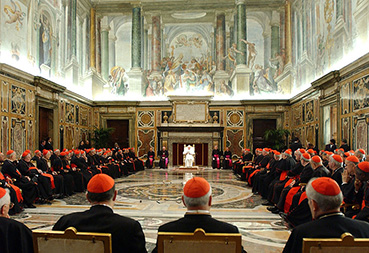
We hear the unadorned facts from Geoffrey Robertson when he eloquently explains how the Church hides behind canon law to evade prosecution. We also hear the facts relating to some successfully prosecuted priests. Men such as Father Tony Walsh of the Irish Church, whom we see impersonating Elvis, and a civilized human being, in a video filmed around the time he strapped a 7-year-old boy to an altar before sodomizing him. For that and other sexual crimes, Walsh is currently serving a lengthy prison sentence. But many of the guilty priests, and many of those most culpable for the cover-up, are in Rome, safely behind the Vatican walls and beyond the reach of justice. As Geoffrey Robertson asserts in The Case of the Pope, and as Gibney reiterates in Mea Maxima Culpa, Pope Benedict XV1 is a case in point. While simply Cardinal Ratzinger (a.k.a. 'The Enforcer' or 'The Pope's Rottweiller') and Head of the shadowy Congregation for the Doctrine of the Faith, the current Pope ordered that all cases of the abuse of minors be sent directly to his desk. So, the current Pontiff must know more about sexual abuse in his Church than anyone else alive. Concerned, above all, with the reputation of the Catholic Church, he has, unforgivably, been more inclined to forgive and protect the perpetrators of paedophile crimes, than he has been either to practise Christian compassion or deliver justice to the scores of victims of his faith's discredited, disgusting, but distinctly not defrocked, faithful servants.
Pier Paolo Pasolini wrote a poem on a pope. In To a Pope he wrote: "There are unspeakable hovels/Where mother and children go on existing/In the dust and filth of a past long gone/Not too far from where you live/Within sight of the vainglorious dome of St Peter's/There is such a place, il Gelsomino . . . A hill half ravaged by a quarry/And down below/Between a stagnant sewer and a row of mansions blocks/A mass of wretched shacks . . . Thousands under your pontificate/Lived on dunghills, in pigsties, under your very eyes/You knew that to sin one need not commit evil deeds/Not to do good – that is the real infamy/What good you might have done! And you did not: There has been no sinner greater than yourself."
Gibney's film makes it clear that Rome has known for decades, centuries even, that the problem of sexual perversion in its ranks has been conducted on a vast scale. It must have; in 1947, it established, under the auspices of the shadowy Servants of the Paraclete, a monastery in New Mexico to 'treat', by means of spiritual uplift, the paedophiles and pederasts responsible for abuse. Monasteries in Missouri in the US and Gloucestershire in the UK were more recently established with identical aims. They, too, were charged with returning priests to active service, refreshed and revitalized. It was never suggested that they should be answerable to secular law, so, it comes as no surprise to learn that the Vatican refused Alex Gibney's invitation to participate in the film. Gibney, a self-confessed lapsed Catholic, has, by raising his voice to breach that culture of silence, bolstered the argument for continued prosecution of guilty priests and those who abetted them by shielding them from justice. He has performed a valuable public service with this enquiry into the propaganda apparatus that underpins the tottering Vatican power structure. Mea Maxima Culpa seethes with contained anger and furious indignation that should transfer to all who watch it.
|